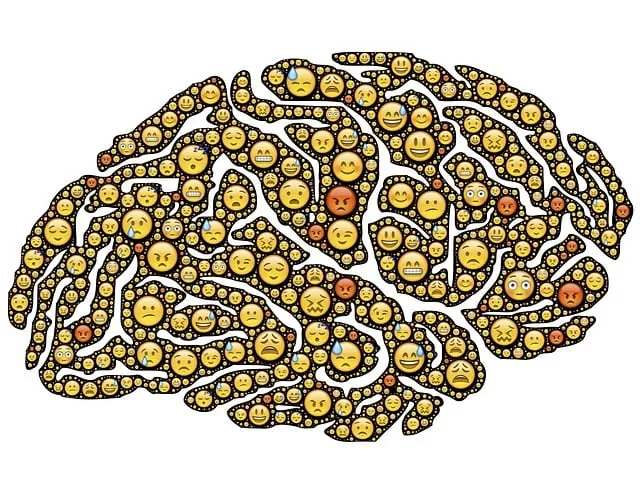Kaiser Permanente Mental Health Aurora tackles mental illness stigma through diverse initiatives focusing on mental health awareness. They achieve this via open dialogues, educational workshops, support groups, and community events. These programs break down stereotypes, teach stress reduction methods, and encourage resilience, making mental healthcare more accessible. By fostering understanding and compassion, Kaiser Permanente empowers individuals to seek help without judgment, ultimately reducing stigma and improving access to care.
In the heart of Kaiser Permanente Mental Health Aurora, a community grappling with mental illness stigma faces unique challenges. This article delves into the profound impact of such stigma, using Kaiser Permanente as a case study. We explore effective strategies to reduce it, from practical initiatives to fostering awareness and empathy within the community. By examining these efforts, we aim to illuminate sustainable solutions for creating a supportive environment where individuals with mental health concerns are embraced rather than shunned.
- Understanding the Impact of Stigma: A Focus on Kaiser Permanente Mental Health Aurora Community
- Strategies to Reduce Stigma: Practical Approaches and Initiatives
- Fostering Awareness and Empathy: Long-term Solutions for a Supportive Environment
Understanding the Impact of Stigma: A Focus on Kaiser Permanente Mental Health Aurora Community

In the community of Kaiser Permanente Mental Health Aurora, understanding the profound impact of stigma on individuals living with mental health conditions is a pivotal step towards reduction efforts. Stigma often acts as a barrier, leading to isolation and hindering access to essential support and treatment. Many struggle in silence due to the fear of judgment, which can significantly worsen their journey towards recovery. By acknowledging these challenges, Kaiser Permanente Mental Health Aurora initiates conversations that foster mental health awareness and promote empathy within the community.
The organization plays a crucial role in nurturing inner strength development by providing platforms for open dialogue about mental illness. Through educational workshops, support groups, and community events, they empower individuals to share their experiences, break down stereotypes, and offer valuable coping strategies. Moreover, these initiatives ensure that stress reduction methods are accessible, teaching participants practical tools to navigate life’s challenges with resilience. Such efforts contribute to a more supportive environment, where those facing mental health issues feel understood and encouraged to seek help without the fear of stigma.
Strategies to Reduce Stigma: Practical Approaches and Initiatives

Reducing the stigma surrounding mental illness is an ongoing process that requires multifaceted strategies. Kaiser Permanente Mental Health Aurora has been at the forefront of these efforts, employing various practical approaches to foster a more understanding and supportive community. One such initiative is the Community Outreach Program Implementation, which aims to bridge the gap between healthcare services and diverse communities by offering tailored programs and resources. This program facilitates open dialogues about mental health, ensuring that individuals from all walks of life feel empowered to seek support without fear of judgment.
Additionally, Mental Wellness Journaling Exercise Guidance has been found effective in encouraging self-reflection and emotional awareness. By providing simple yet powerful tools like journaling, Aurora’s programs guide participants to recognize and manage their mental health proactively. Similarly, designing comprehensive Mental Health Education Programs that cater to different age groups and demographics is another key strategy. These programs equip individuals with knowledge about various mental health conditions, treatment options, and the importance of seeking help, thereby fostering a more empathetic and supportive societal environment for those dealing with mental illness.
Fostering Awareness and Empathy: Long-term Solutions for a Supportive Environment

Mental illness stigma reduction requires a multifaceted approach, and fostering awareness and empathy is a cornerstone of creating a more supportive environment. Organizations like Kaiser Permanente mental health Aurora play a pivotal role in this process by promoting educational initiatives that dispel myths surrounding mental health issues. These efforts extend beyond mere information dissemination; they involve cultivating conversations that encourage understanding and compassion. By integrating mental health into mainstream discussions, communities can foster an atmosphere where individuals feel empowered to seek support without fear of judgment.
Moreover, fostering awareness goes hand in hand with burnout prevention and confidence-boosting strategies. Effective communication strategies are essential tools in this regard. Encouraging open dialogue between peers, colleagues, and community members can help identify signs of struggle early on. This proactive approach not only aids in timely intervention but also strengthens interpersonal connections, leading to a more supportive and inclusive social fabric. Ultimately, these long-term solutions contribute to reducing the stigma associated with mental illness, ensuring individuals receive the care they need without hesitation.
Efforts to reduce stigma surrounding mental illness are essential for creating supportive communities, as highlighted by Kaiser Permanente Mental Health Aurora’s community initiatives. By implementing practical strategies and fostering awareness, we can challenge societal perceptions and promote understanding. Through education, open dialogue, and empathy, we can break down barriers and ensure individuals with mental health challenges receive the support and care they deserve in the Kaiser Permanente Mental Health Aurora community and beyond.






